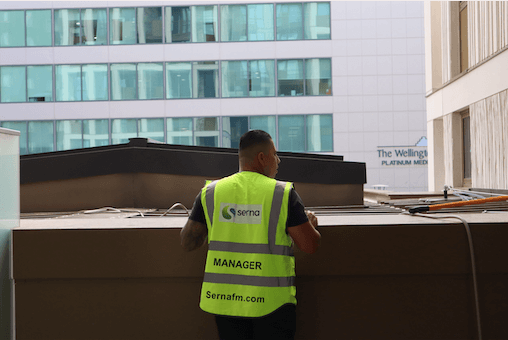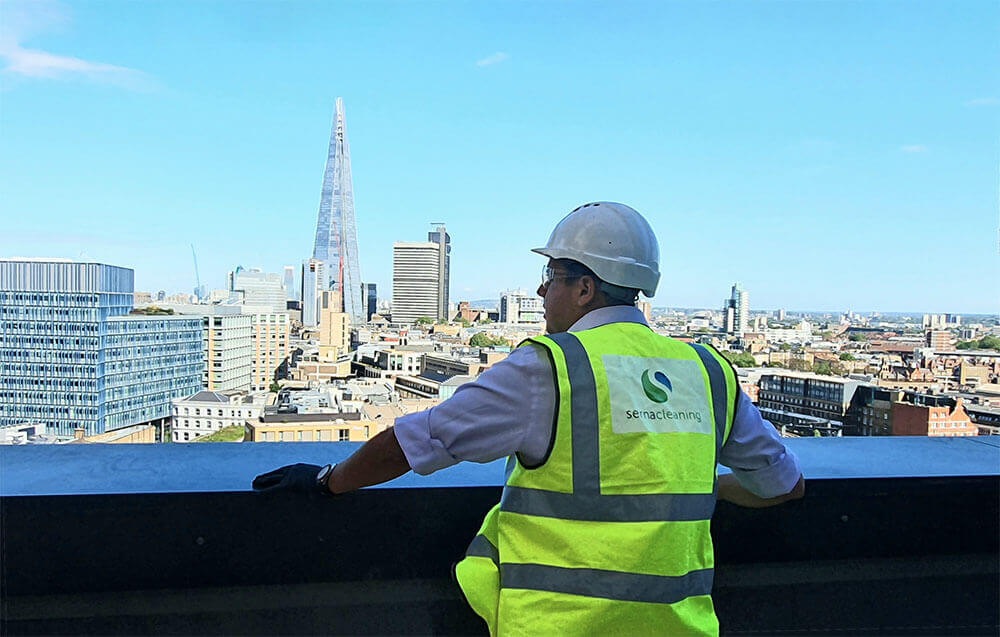Facility management plays an essential role in the efficient and effective operation of a wide range of businesses and organisations, from corporate offices to educational institutions, healthcare facilities and retail spaces. Despite being a critical function, facility management is often misunderstood or overlooked. With this in mind, Serna FM discusses what exactly is facility management and why it is so important.

What Is The Definition Of Facility Management?
Facility management (FM) is the practice of coordinating the physical workplace with the people and processes that operate within it. This includes managing and maintaining the physical environment, ensuring safety and security, overseeing utilities and equipment and improving operational efficiency. The goal of facility management is to ensure that the building or site functions smoothly, is safe, comfortable and is cost-effective for the organisation and its employees.
Facility management is a multidisciplinary profession that brings together various aspects of business administration, architecture, engineering and behavioural sciences. It involves everything from cleaning, maintenance and health and safety to space planning, sustainability and technological upgrades.
What Are The Core Functions Of Facility Management?
Facility management can be broken down into two main categories: hard services and soft services. Both are integral to the day-to-day running of a building and the comfort of those who use it.
1. Hard Services
Hard services refer to the physical infrastructure of a facility. These are the services that cannot be removed from the building and are often related to the structure and function of the facility itself. Common hard services include:
- HVAC (Heating, Ventilation, and Air Conditioning): Ensuring a comfortable temperature in the building and proper ventilation.
- Electrical Maintenance: Managing electrical systems, including lighting, wiring and power outlets.
- Plumbing: Maintaining water supply, drainage systems and sewage disposal.
- Building Repairs and Maintenance: Handling structural repairs and maintaining the general physical condition of the building.
- Fire Safety Systems: Regular testing and maintenance of fire alarms, extinguishers and sprinkler systems.
These services are essential for keeping the facility safe, operational and compliant with local regulations. A failure in any of these systems can result in serious disruptions and safety hazards.
2. Soft Services
Soft services are those that make the building a more pleasant and functional place to work or visit. These services are more people-oriented and tend to enhance the comfort, cleanliness and experience of the facility’s users. Examples of soft services include:
- Cleaning and Janitorial Services: Ensuring the building is kept clean, hygienic and presentable.
- Security: Managing security personnel, CCTV systems and access control to ensure the safety of occupants.
- Waste Management: Handling waste disposal, recycling and the overall cleanliness of the facility.
- Catering and Food Services: For large organisations, this may include managing on-site cafeterias or catering services.
- Reception and Front Desk Services: Providing a welcoming presence for visitors and managing inquiries and appointments.
While these services may seem less critical than hard services, they contribute significantly to the well-being and productivity of building occupants.
What Is The Role Of A Facility Manager?
The facility manager is the key person responsible for coordinating and overseeing both hard and soft services within a building. Their role is multifaceted and requires a mix of technical knowledge, managerial skills, and problem-solving abilities. Key responsibilities of a facility manager include:
- Strategic Planning: Aligning facility operations with the organisation’s goals and future growth. This could involve planning for space expansions, renovations or sustainability initiatives.
- Budget Management: Controlling costs related to building maintenance, utilities, and services, and ensuring the facility runs efficiently within its budget constraints.
- Contract Management: Dealing with third-party contractors and suppliers, including negotiating contracts, overseeing work and ensuring compliance with service level agreements.
- Health and Safety Compliance: Ensuring that the building complies with all legal regulations and safety standards, including fire safety, accessibility and environmental regulations.
- Sustainability Initiatives: Implementing eco-friendly practices, such as energy-efficient lighting, waste recycling programmes and water conservation measures.
- Technology Integration: Utilising modern facility management software and smart technologies to automate and optimise building management processes.
Facility managers play a crucial role in ensuring that day-to-day operations run smoothly while also planning for the future needs of the organisation. They are problem solvers who must balance cost-efficiency with maintaining high service standards.

Why Is Facilities Management So Important?
Facility management impacts almost every aspect of an organisation, from operational efficiency to employee satisfaction and safety. Here are some of the key reasons why effective facility management is so important:
1. Operational Efficiency
An efficiently managed facility helps minimise downtime and disruptions, ensuring that employees can focus on their work. For instance, a broken HVAC system could lead to uncomfortable working conditions, lowering productivity. Effective facility management helps keep essential systems running smoothly and ensures any issues are addressed promptly.
2. Cost Savings
Good facility management helps organisations save money by streamlining maintenance processes, optimising energy use, and extending the lifespan of the building’s infrastructure. Facility managers can identify areas where energy efficiency can be improved, such as upgrading to energy-efficient lighting or optimising heating systems, leading to significant cost reductions.
3. Safety and Compliance
One of the most critical functions of facility management is ensuring the safety of the building’s occupants. This includes everything from maintaining fire safety equipment to making sure that the building is accessible to people with disabilities. Facility managers are responsible for ensuring that the building complies with health and safety regulations, avoiding legal issues and ensuring a safe environment for all users.
4. Employee Satisfaction and Productivity
The physical environment of a workplace can have a major impact on employee satisfaction and productivity. A clean, well-maintained, and comfortable facility helps create a positive working environment, leading to higher employee morale and productivity. Proper lighting, heating and ventilation can improve focus and reduce absenteeism due to health issues caused by poor conditions.
5. Sustainability and Environmental Impact
Sustainability is an increasingly important consideration in facility management. Implementing eco-friendly practices, such as energy-saving technologies, recycling programmes and water conservation, helps reduce the environmental impact of the building. Facility managers play a key role in promoting sustainability within the organisation and can often lead initiatives to make buildings more environmentally friendly.
Final Thoughts
Facility management is much more than just keeping a building in working order. It is a comprehensive approach to ensuring that a building or facility operates efficiently, safely and cost-effectively while meeting the needs of its users. From managing day-to-day maintenance to implementing long-term sustainability initiatives, facility management is a vital function that supports the overall success of an organisation.
Whether it’s maintaining the HVAC system in an office building, ensuring the safety of students in a school or managing the daily cleaning and security needs of a commercial space, effective facility management is essential for creating a productive and safe environment.

